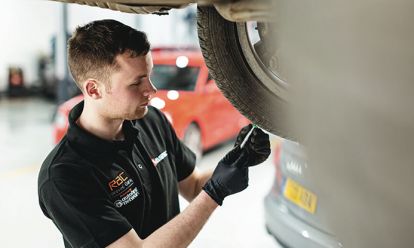The Department for Transport (DfT) has officially launched a public consultation on the future of MOTs, with none of the current suggestions being enforced.
This is because the Government is seeking to get a better understanding of the current state of the industry, and to ensure roadworthiness checks continue to meet the correct standards, whilst also not adding to the current cost of living crisis impacting millions across the country.
DfT also wants the annual test to keep up with advances in vehicle technology as well as tackle the ongoing climate crisis.
According to the announcement, to ensure MOTs remain fit for the future, the consultation is looking into changing the date at which the first MOT for new light vehicles is required from three to four years.
Although this has received mixed views from the media and across the motoring industry, the Government believes that the plans could save motorists around £100 million a year in MOT fees.
Data shows that most new vehicles pass the first MOT test at three years. In fact, Government analysis shows that a potential change from three to four years for the first MOT should not impact road safety.
After a consultation period, DfT will announce its plans to change the current way testing is done in the UK.
However, any changes will need to be supported by the Driver and Vehicle Standards Agency (DVSA).
Despite the opposition and inevitable debate on the future of MOTs, undertaking roadworthiness testing four years since the vehicle’s registration is already standard practice across many European countries.
Another potentially controversial addition to the future of the industry, relates to the frequency of MOTs and how to improve monitoring of pollutants and emissions.
Planned new measures include testing of pollutants such as particulate number (PN) and NOx to ensure vehicles meet the relevant emissions requirements.
Both DfT and the DVSA are looking to tackle excessively loud engines, and how the annual MOT can play a role in this.
The consultation will also look at how to improve the MOT for electric vehicles (EVs).
Initially, DfT will look into how EV batteries should be tested to improve the safety and reliability.
RAC head of roads policy Nicholas Lyes said: “While we’re not opposed to delaying a new vehicle’s first MOT, we believe there should be a requirement for particularly high mileage vehicles to be tested sooner.
“If the Government is looking to improve the MOT, now is the ideal time to take into account how much a vehicle is driven, alongside the number of years it’s been on the road.
“We’re also disappointed the Government is still entertaining the idea of increasing the time between MOTs.
“Our research clearly shows drivers don’t agree with this and believe it’s dangerous. It would also likely increase the number of unroadworthy vehicles on our roads – putting lives at risk – and not save drivers any money as they would likely end up with bigger repair bills as a result.
“Given the technological advances of driving aids in cars and the increasing adoption of electric vehicles, there is an argument that suggests the MOT will need to adapt accordingly in the future.
“Certainly, moves to check for faulty or removed diesel particulate filters will improve air quality by targeting dirty vehicles.”
What do you make of the latest announcements regarding the future of MOTs? Leave your comments below. You can also send your own responses to the proposals to the Government here.

RAC sale – up to 33% off*
• Roadside cover from £5.29 a month†
• We get to most breakdowns in 60 mins or less
• Our patrols fix 4/5 breakdowns on the spot












